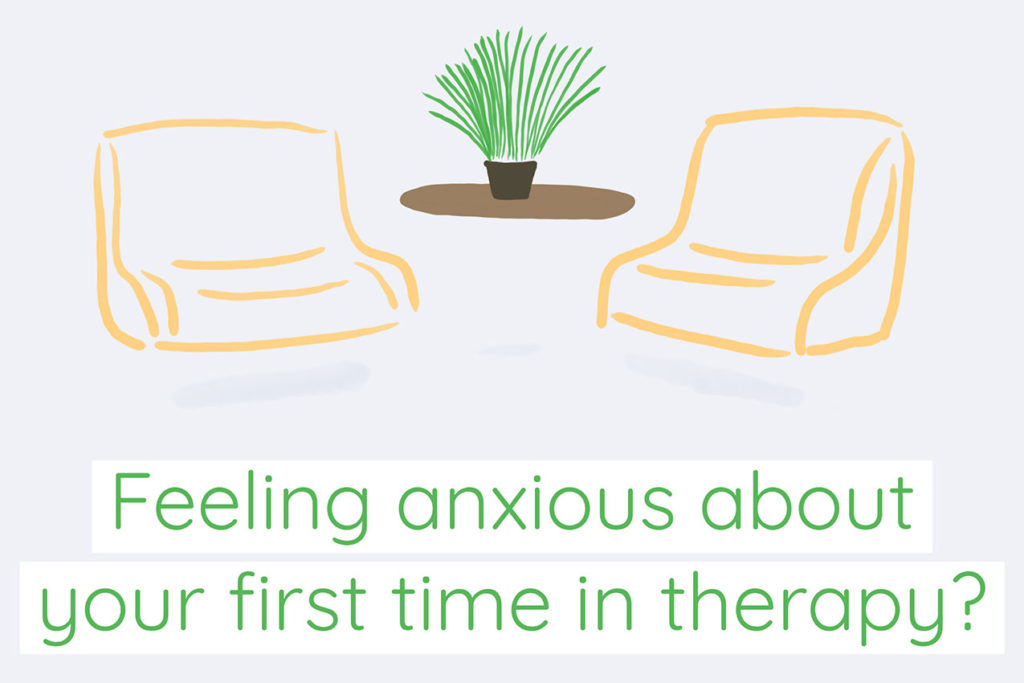Feeling anxious about your first time in therapy? Here’s what to expect:
by Roamers Therapy | July 2020

The thought of going to therapy can be a very scary one, especially if it is your first experience. It is completely common and normal to have concerns or expectations for what therapy will be like. It can be useful to keep in mind that the experience of therapy will vary from person to person. Since everyone is unique in their own way, one person’s experience does not directly translate to another’s.
Let’s review some common anxieties people have about therapy:
- It will take forever to see real results. Sticking with the idea that everyone is different, the length of time it will take for someone to see results also varies. Therapy is a relationship between the clinician and the client. There needs to be a give and take from both sides, just like with any other healthy relationship. The length of time also depends on the presenting issues a person brings to therapy to work on. You as the client have power in your treatment and how you want the process to unfold.
- You have to be experiencing a crisis. This one is simple. Sometimes people have crises and feel it beneficial to seek a therapist, other times, a crisis isn’t present and people still seek therapy. Both are completely valid and neither are the “right” way to do therapy.
- Going to therapy means something is wrong with you. Going to therapy does not necessarily mean anything is wrong with you. People seek therapy for many reasons such as wanting guidance in their relationships, career, to feel validated, because they’re stressed and need help with coping, and so on.
- Your therapist will judge you. You can be assured that therapy is a safe space for you to feel heard, supported, and validated without judgement.
Now that I have provided some common misconceptions and helped to alleviate some anxiety of what not to expect from therapy, let me explain what therapy is and what it can offer you.
Therapy begins with rapport building between the therapist and the client. People go to therapy to receive guidance to improve any minor or major areas of their life, as well as achieve their goals along the way. The individual you speak to is a qualified mental health professional who is trained to help people process their thoughts and emotions, help guide them on how to improve their relationships, and change their unwanted behaviors, among others.
What you can expect from your first session with your therapist is for them to begin asking questions about your history, including childhood, social life, substance abuse, family, career and education, psychological and/or medical history, and suicidality. Often, this information will take a few sessions to fully get to know the client. However, you will also be asked what brought you to therapy, what you expect to receive from therapy, and a little about how your therapist may help you achieve your goals.
After speaking to a therapist and interacting with them a bit you will have a much clearer idea of their personality and clinical style. This will all give you clarity of whether they are a right fit for your needs, if you two will be a match, and if you would like to continue working with them.
Now that you have reached the end of this post, I hope you have gained some answers to your concerns for therapy and if you feel like therapy is something you would like to try out. I encourage you to give it a try!
At Roamers Therapy, our psychotherapists are here to support you through anxiety, depression, trauma and relationship issues, race-ethnicity issues, LGBTQIA+ issues, ADHD, Autism, or any challenges you encounter. Our psychotherapists are trained in Cognitive Behavioral Therapy, Dialectical Behavioral Therapy, Psychodynamic Therapy, Acceptance, and Commitment Therapy, Person-Centered Therapy, and Gottman Therapy.
Whether you’re seeking guidance on a specific issue or need help navigating difficult emotions, we’re ready to assist you every step of the way.
Contact us today to learn more about our services and schedule a session with our mental health professionals to begin your healing journey. To get started with therapy, visit our booking page.
First, decide if you’ll be paying out-of-pocket or using insurance. If you’re a self-pay client, you can book directly through the “Book Now” page or fill out the “Self-Pay/Out-of-network Inquiry Form.” If you’re using insurance, fill out the “Insurance Verification Form” to receive details about your costs and availability. Please let us know your preferred therapist. If your preferred therapist isn’t available, you can join the waitlist by emailing us. Once your appointment is confirmed, you’ll receive intake documents to complete before your first session.
This page is also part of the Roamers Therapy Glossary; a collection of mental-health related definitions that are written by our therapists.
While our offices are currently located at the South Loop neighborhood of Downtown Chicago, Illinois, we also welcome and serve clients for online therapy from anywhere in Illinois and Washington, D.C. Clients from the Chicagoland area may choose in-office or online therapy and usually commute from surrounding areas such as River North, West Loop, Gold Coast, Old Town, Lincoln Park, Lake View, Rogers Park, Logan Square, Pilsen, Bridgeport, Little Village, Bronzeville, South Shore, Hyde Park, Back of the Yards, Wicker Park, Bucktown and many more. You can visit our contact page to access detailed information on our office location.
